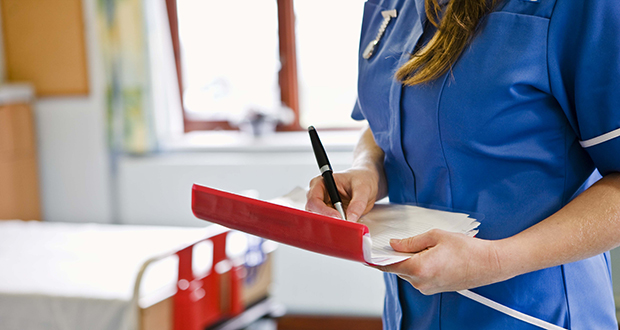Almost two-thirds have considered leaving their work in the past month, survey finds
Nine-in-ten nurses and midwives have expressed concerns that patient safety is at risk as a result of current staffing levels in the Irish health service, according to a new survey.
The research, published as the Irish Nurses and Midwives Organisation opens its annual conference today, also found that three-quarters (76 per cent) of respondents believe that the current number of staff and skills mix in hospitals do not meet the required clinical and patient demands in their work area.
In total, 92 per cent said they were worried about potential risks to patients because of these issues.
More than half of respondents (54 per cent) felt under pressure from their workplace to work additional hours/shifts, with 15 per cent stating they worked more than 20 additional unpaid hours per month.
Levels of stress were also gauged, with the survey finding that more than one-in-five respondents (21.39 per cent) had attended their GP due to work-related stress.
Almost two-thirds (63 per cent) of respondents had considered leaving their work area over the last month, and of those 44.54 per cent said this was mainly due to workplace stress.
One-in-eight (12.57 per cent) respondents said they have had, or are living with, long Covid.
“More than four years on from the start of the COVID pandemic, INMO members are still dealing with the effects in their workplaces, in their practice, and in their own health,” said INMO president Karen McGowan.
“Meanwhile the government has failed to make progress on hospital overcrowding, and conditions for staff and patients in many places has gotten far worse than we could have imagined.
“Not only is this situation not sustainable, but it is painfully clear from these survey results that the Irish health service and its staff are not in a position to ensure another crisis. These services and the people working in them, are hanging by a thread, and it’s frightening to think what would happen if they had to withstand another serious shock.”
